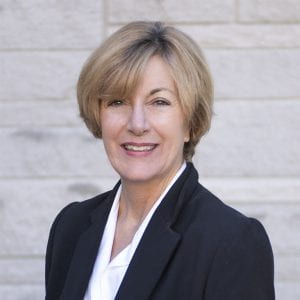
By Leslie Hodder, Graduate Accounting Programs Chair
Why did the Graduate Accounting Programs begin offering the MSADA degree?
Because MSA and DA make a perfect combination! To explain the acronym, MSA stands for the Master of Science in Accounting and DA stands for Data and Analytics. The Master of Science in Accounting with Data and Analytics represents the best of both worlds and a combination that is stronger than either alone. Accounting has always supported data-driven, informed decision making. One of the first questions managers ask in any decision context is “what do the numbers tell us?” Accountants are there with the answer, bringing relevant facts and developing controls to ensure information integrity.
So, if Accountants have always been working with data, what changed?
While accounting has long focused on quantifying the value of resources, and changes in those resources, the profession has moved well beyond the financial bottom line. Accountants are leading the way with advanced data analytics, helping businesses extract actionable intelligence from their reporting systems and identifying process improvements. Modern accounting analytics includes diagnostic analytics, predictive analytics, and prescriptive analytics. Diagnostic analytics are designed to answer such questions as “what is the most profitable product line?” Predictive analytics answer such questions as “how much revenue will the company earn if it doesn’t change its strategy?” and prescriptive analytics answer questions like “what changes should be made to increase revenue?” Asking and answering relevant business questions requires knowledge about revenue and expense generating functions and how they are related, as well as approaches, methods, and tools for data analysis. The combination of these skills is in high demand, and our employers tell us finding someone who both understands the business context and has the analytic mindset and technical skills to follow through is rare. This is the core reason Indiana University has begun offering this new STEM-designated degree. In two semesters beyond the Accounting Bachelor degree, MSADA students earn enough hours to qualify to take the CPA exam while immersing themselves in advanced electives in data analytics as well as auditing and forensics or tax.
In your opinion, what’s the next big development in accounting?
Sustainability reporting. Broader notions of corporate social responsibility require financial reporting to evolve and move beyond the narrow scope of monetary measures to which accounting has been confined. As a member of the International Financial Reporting Standards Advisory Council, I have a front row seat to this change as the International Accounting Standards Board Trustees have just proposed formation of a new Board to provide standards for environmental, social and governance reporting. When stakeholders want real measures and verified data, they turn to accountants. If sustainability reporting is to reflect corporate social responsibility, accounting will provide the accountability.
Leave a Reply